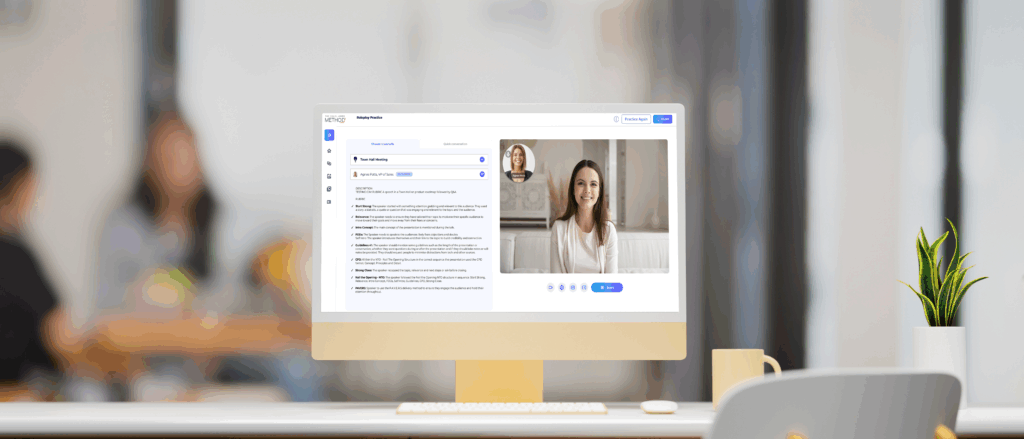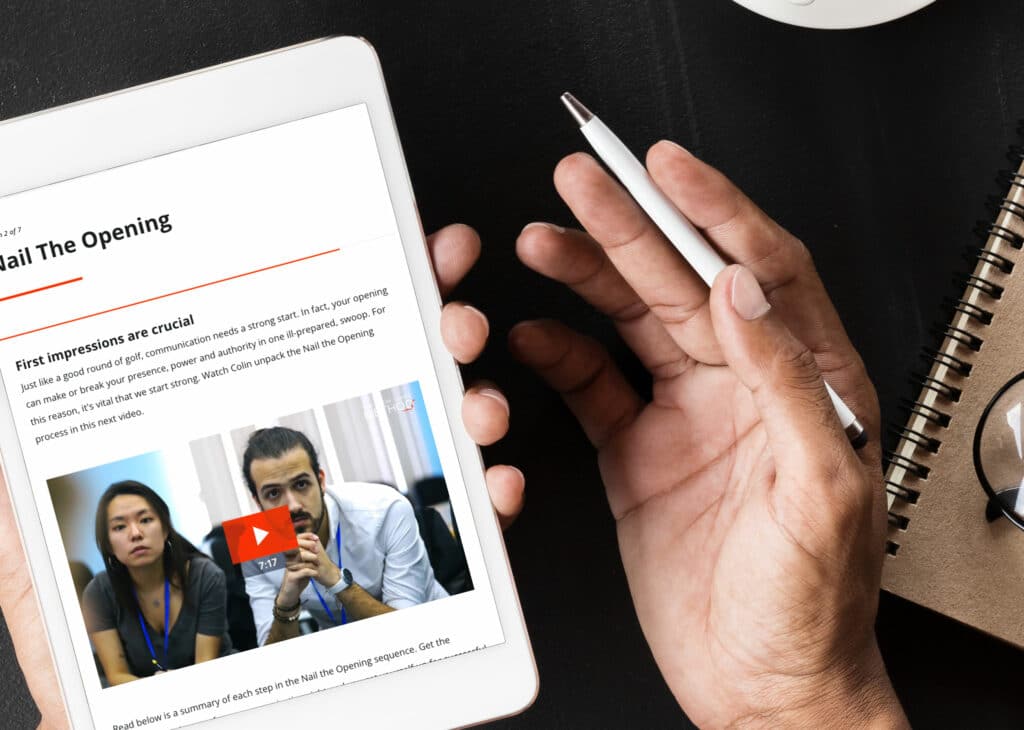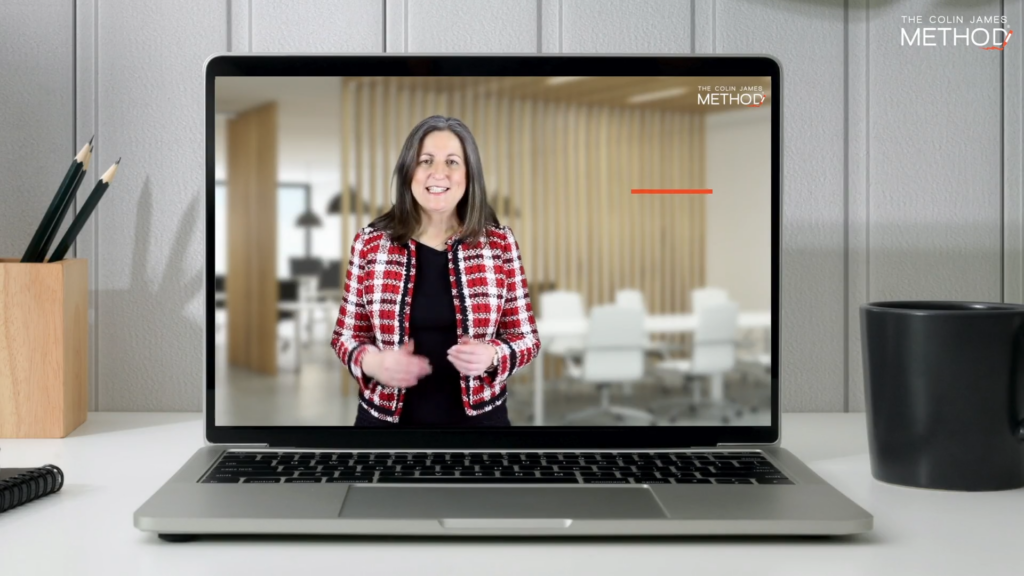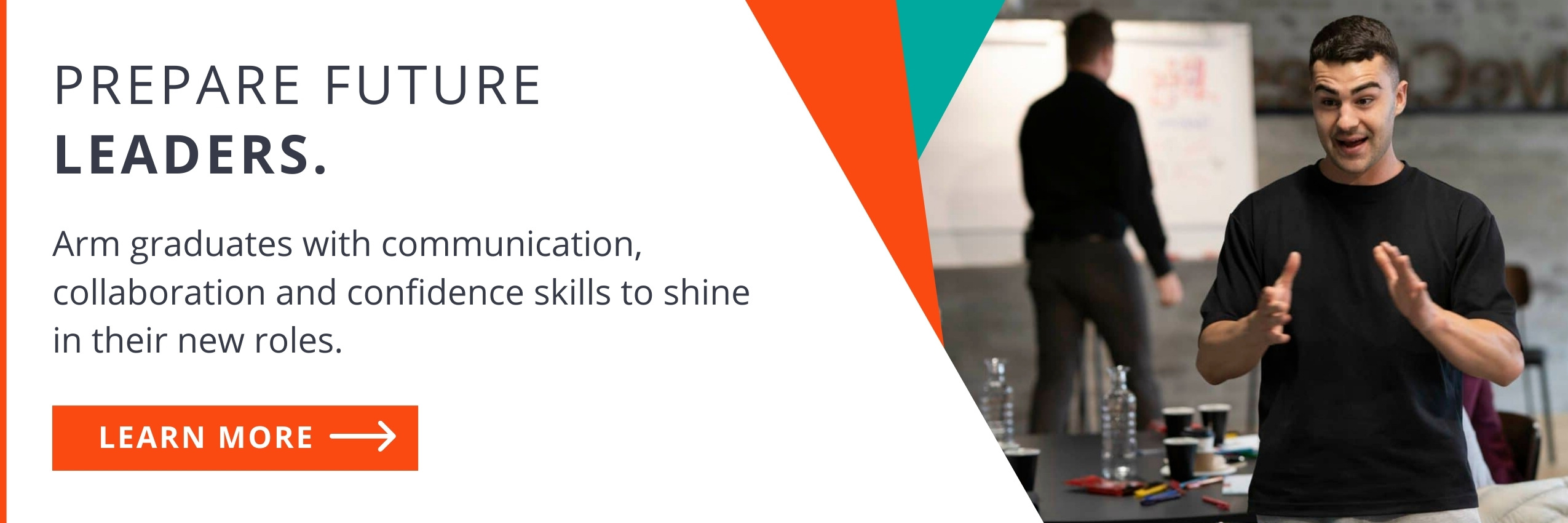Summary
- Gen Z brings a vibrant energy and curiosity to meetings, challenging conventional thinking and promoting critical thought. Their mindset favors continuous improvement, making them valuable assets in organizations seeking innovation.
- Gen Z tends to keep their cameras off in these meetings, partly due to lengthy, unproductive meeting times. They prefer contributing meaningfully and believe they shouldn’t attend meetings without substantial input, which can hinder their visibility and personal brand development.
Who is Generation Z?
Move over Millennials, it’s time for Gen Z graduates to make their mark in the business world—by 2025, they are expected to account for nearly a third ( 27% ) of the workforce.
Generation Z are those born between 1996 and 2015. They represent a distinct demographic now entering the working world. This cohort is justifiably well-adjusted to digital technologies, leading to the expectation that they will drive a new wave of innovation.
Having come to adulthood in a unique time of digital technology, globalisation, environmental awareness and diversity, what a mark they are going to make. In fact, Generation Z is said to be “ the most materially endowed, technologically saturated, formally educated generation our world has ever seen. ”
What does Gen Z want from work?
When it comes to work, Gen Z gravitate towards options that hold a higher purpose. They are driven by a desire to make a difference in the world, and are often motivated by authentic connections to their employer—for example, their values should be shared. It’s also important for them to feel like they are receiving support and guidance, and the opportunity for growth and learning should form an intrinsic part of their job.
They are often willing to make money-related sacrifices if their values are met and they can work with purpose. Flexibility will be key, as will the availability of technology-enabled working. Although Gen Z will demand new ways of working and are adept at mastering the latest technology, it should be remembered that Gen Z will be an important driving force of creativity and innovation in the workplace.
How will Gen Z affect the workplace?
It is a widely accepted notion that every new generation helps shape the way people live and work, from Baby Boomers to Gen X to Millennials, and now Gen Z, too. It is expected that Gen Z will bring with them a range of skills and abilities that the workplace has not yet seen. As the youngest generation in the workplace, they will bring a latent enthusiasm and drive which could be used to fuel positive change within workplaces.
Gen Z are thought to have an inclination for collaboration, flexible working and a heightened desire to make an impact in the wider world, meaning that they will push workplaces to adapt and become more attuned to the needs of a more diverse group of people.
As well as being tech-savvy, Gen Z are renowned for their agility, creativity and problem-solving abilities, so expect the workplace of the future to be ever evolving and dynamic.
What managers can learn from Gen Z
The world of work is changing rapidly and managers must be open to different ideas and ways of working. By exploring what Gen Z can bring to the table, managers can discover invaluable insights. Gen Z employees tend to welcome change and challenge the status quo, so they bring a freshness of thought and energy to the workplace.
They are also adept at using technology, so managers can learn how to optimise their use of digital tools to enhance productivity and access to data. Gen Z is also highly collaborative and comfortable with working in distributed teams, so managers can be encouraged to adopt new working practices that make use of these skills. With their open minds and inspiring ideas, Gen Z offers a valuable opportunity for managers to learn and develop.
8 Workplace Characteristics of Gen Z
Through our recent work with Gen Z graduates, our graduate development program facilitators have noticed some common themes.
1. They are technological problem-solvers
The best thing about this generation is their technological ingenuity, says Melbourne-based CJM facilitator Tim Chilvers. “Because they’re a generation that has been forced to fix wifi, reinstall software, diagnose problems and create integration.”
Digital natives are an asset in the workplace. “Rather than fear the pace of technological change, they embrace it,” explains facilitator Paul Bindig. “They’re genuinely curious about new ways of doing things, particularly if these new methods are sustainable and enabled by cutting-edge tech. They can act as mentors and guides for those around them not as comfortable with the digital world. They actually want to educate others and help them understand their way of thinking.”
2. They are less bound by organisational hierarchy
More Australian employees are looking for hybrid work opportunities than their international peers, a report has revealed. One result of this rise in hybrid and remote working is the popularity of digital business communication tools. These tools (such as Teams, Slack, etc) have levelled the playing field for workplace communication, such that Gen Z graduates aren’t encumbered by the hierarchy when communicating with more senior colleagues. CJM facilitator Critter Gilpin explains: “While these internal channels provide access to an enormous amount of organisational context, they also democratise communication by making nearly anyone in the organisation contactable. Graduates view organisational structure as flat, making them more comfortable contacting senior colleagues and leaders.”
3. Their communication style tends to be informal
One downside of this non-hierarchical approach to business communication is informality, which can give rise to misunderstanding. Gen Z have grown up using a form of shorthand in digital text messaging apps, including emojis and gifs to express humour, creativity and subtle nuance, which is often lost on their older colleagues who tend to take a much more literal approach. In fact, a survey from Duolingo and Slack found that 74% of respondents have experienced a misunderstanding with an emoji.
“In the right context, informal shorthand can be efficient and serve graduates well,” says Paul Bindig, “but this abbreviated form of written communication does not lend itself to more complex business proposals, dealing with delicate stakeholder situations, or communication of thoughts, plans and ideas to senior leaders. At times, many Gen Z-ers could benefit from improved skills in communicating in a more formal, yet clear, manner.”
4. They lack an understanding of what meaningful corporate communication looks like
Though their natural communication style is informal, when they attempt more formal corporate communication, they fail to make an impact. “I have worked with many Gen Z people who too easily parrot the “manager speak” we’re all too familiar with,” says Paul Bindig. “My feeling is that, because so much of their communication is text-based, they sometimes lack good role models for delivering absolute clarity of message in non-text-based business communication scenarios (via phone, face-to-face or Zoom/Teams for example). In the absence of these role models, they often copy what they see and hear, which is all too often boring corporate buzzwords delivered in pointless meetings. However, because this generation is so adaptable, they can easily break out of this mode if they’re given the proper guidance, tools and support to do so.”
5. They lack the self-awareness and communication strategies to demonstrate their real value
Critter Gilpin has noticed that Gen Z graduates are not always equipped with the self-awareness and communication strategies to build a strong perception of their overall knowledge and capability. “One of the largest improvements we have been able to bring about in graduate development training we’ve been involved with is the ability to deeply understand one’s value and share it with others confidently. Even in flat organisations, graduates need to learn how to communicate and influence without positional authority.”
6. They tend to prioritise data over insights and storytelling
The term ‘Big Data’ has been around as long as Gen Z has been. One outcome of this is that graduates place too much emphasis on data and not enough on the insight that can be gained from analysis of the data—and more than that, the engaging narrative that can be created to communicate that insight in an impactful way.
Bangkok-based CJM facilitator Darien Cohen says, “Gen Z-ers have been seduced into believing that data carries the day. If this were true, we wouldn’t have a need for meetings. We’d just email spreadsheets and PowerPoint presentations around all day and work would function seamlessly. Luckily this is not the case. We need people to share ideas and concepts and to provide energy to the data. This energy can rouse an audience to accept a challenge and reach new heights. If too low, the audience may feel that the challenge is not worthy of their time or effort.”
7. They are critical thinkers, adaptable and energetic
There is an obvious benefit to having Gen Z in the workforce, besides their technological capability, and that’s the energy that comes with youth. “Gen Z-ers bring a level of energy and curiosity to our sessions that I wish I could bottle and market to some of us older folks,” remarks Darien Cohen.
“Gen Z is happy to ask questions and challenge current thinking,” explains Paul Bindig. “They have been educated to think critically rather than slavishly learn things by rote and follow workplace dogma. This mindset makes them perfect for any organisation serious about continuous improvement.”
8. They under-value the power of non-verbal communication
Between 2020 and 2022, virtual meetings grew from 48% to 77%. But in these scenarios, digital natives tend to keep their cameras off. This may be due to traditional corporate meeting times being lengthy, which many graduates find unnecessary and unproductive. In fact, Gen Z employees believe that they should not be included in meetings where they have nothing to contribute. This thinking prevents Gen Z-ers from being as visible, which prevents them from building their personal brand.
From the perspective of meeting efficacy, it also prevents the presenter from using their physiology to energise their communications, and it can prevent the presenter from knowing if the audience is in sync with what is being shared. Ultimately, this impacts the power of the meeting or presentation. “Any presenter worth salt understands that their communication is in service to the audience,” says Darien Cohen. “It is called being fully present for each other. No distractions. Looking down the camera and sharing with our colleagues.”
Bottom line advice for employing Gen Z graduates
Working with graduates brings with it a whole host of complexities. One consistent theme has emerged with the more recent graduate cohorts: growing up as digital natives, which brings with it an interesting mix of positives and negatives with respect to one of, if not the, most important professional skill: communication.
It’s important to build strong communication with respect to your tasks and role. But graduates run the risk of focusing too much on daily tasks and not enough on building relationships and their personal brand. As a result, they will find it hard to stand out in the workplace, get recognition and expand their ability to take on more responsibility. Working on their communication skills will help them to grow and potentially have more opportunities further down the line.











